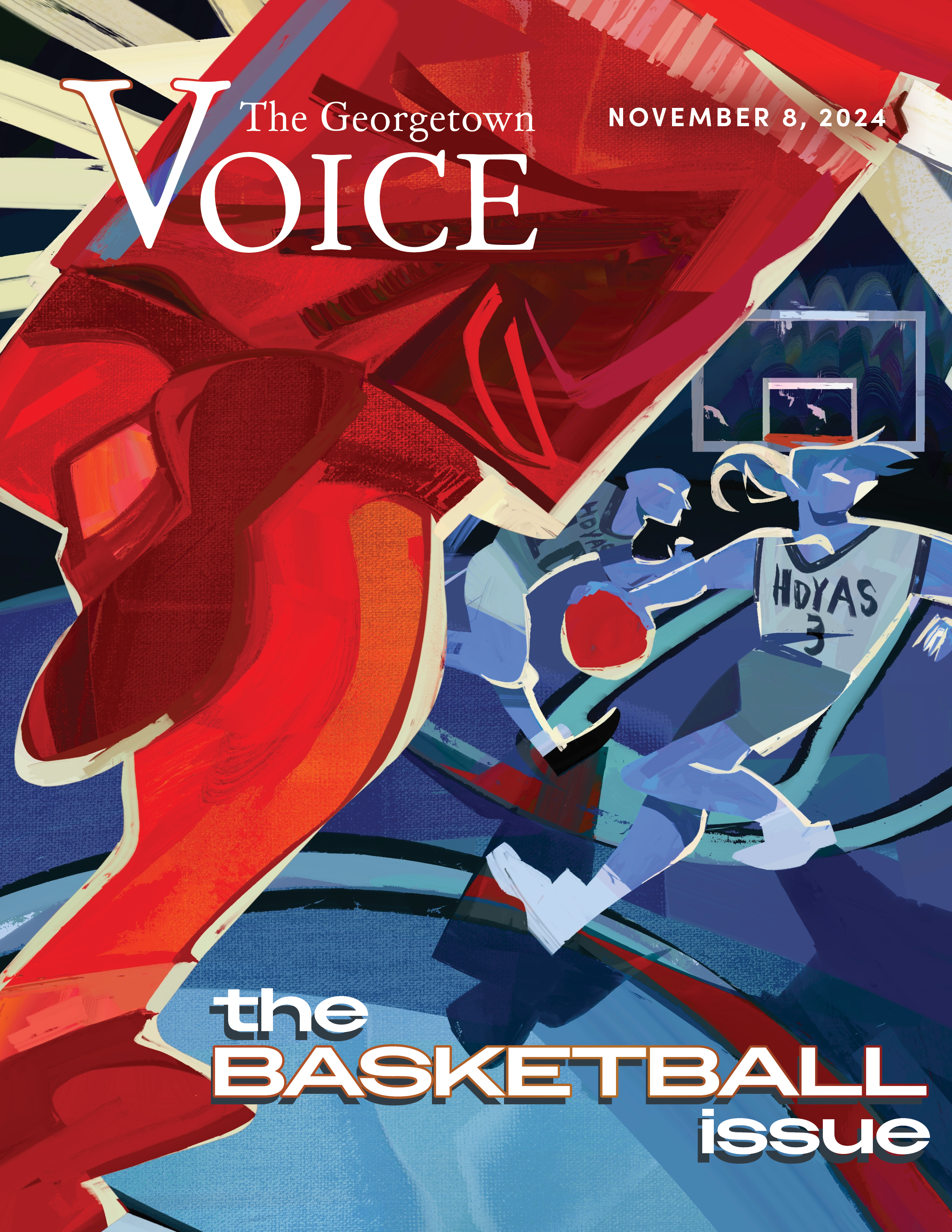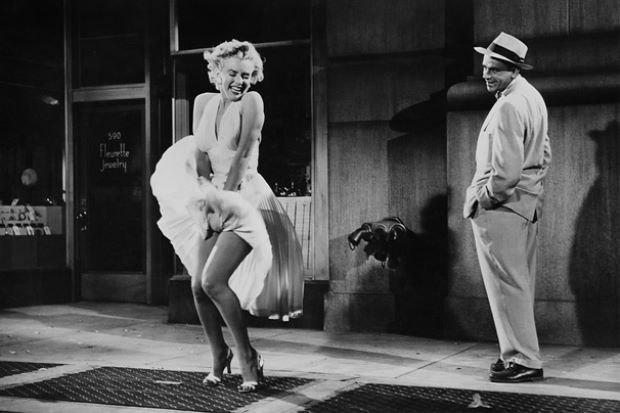Marilyn Monroe long ago reached mythic, unreachable status as an immediately recognizable celebrity figure. She beams down in four different colors from Andy Warhol’s famous pop art, eyes peeping out almost sleepily from heavily lined lids, lips pink and mole front and center. Life size cardboard cutouts populate theaters and vintage movie shops. Biopics and documentaries have attempted to distill her complex, vulnerable essence into a collection of well-chosen clips and interviews. Even my roommate has a poster hung above her bed that features the actress leaning forward in a chair, smiling, beckoning.
But perhaps the image we associate most with Marilyn Monroe is that iconic subway grate/halter dress blowing scene snatched straight from Billy Wilder’s 1955 classic comedy The Seven Year Itch. Parodied countless times — from The Simpsons to a Snickers commercial (the latter to horrifying effect) — it is easy to forget the film in which its context is grounded. That context is often flawed — for instance, the opening scene features a parade of obviously white actors in brownface portraying Native Americans — but because the film paralleled its leading lady in staying power, to forget it would be a crime.
The premise is simple — and startlingly sexist from a 21st century perspective: with their wives and children safely away to the country, working Manhattan men obliged to summer in the city can have a heyday smoking, drinking and ogling pretty young things. Among these men is Richard Sherman, played by Tom Ewell, an insecure man with an active imagination who is beginning to feel the pangs of restlessness after seven years of marriage to his perfectly lovely wife. Fighting his baser instincts and the image of his nagging wife still plaguing him, Richard vows to listen to his doctors and abstain from life’s pleasures until a beguiling blonde moves into the apartment upstairs. Sherman spends the rest of his time frantically vacillating between throwing himself at Marilyn’s nameless character — “The Girl” as the credits dub her— and barring her from his apartment. Of course, this situation is complicated by the sweltering heat that overtakes the city in the summer, prompting The Girl to cozy up to Sherman’s air conditioning and try out the ventilation in that iconic white dress.
As the object of Sherman’s infatuation, Marilyn justifies her title as a timeless bombshell. Her girlish, lilting voice, slow-mo swagger and alluring vulnerability elevate the film. With so much attention paid to her looks, it is easy to forget that Marilyn was a good actress; it’s hard to picture anyone else saying “I think you’re just delicate” with the perfect balance of earnestness and sultriness as she does. She simultaneously exudes sweetness and seductiveness, naïveté and power. In other words, The Girl was the part Marilyn was born to play, and it is a treat to watch her slide effortlessly between contradictions.
While The Girl is certainly a major character, the story belongs to Ewell’s unsure, goofy Sherman whose rampant daydreams score almost as much screen time as does reality. In one amusing scene, he asserts his chick magnet status to his wife in a made-up conversation, describing in gallant detail the way he resisted the lusty, pleading advances of his secretary and nurse. It is hard to ignore his glaring misogyny; he leers, he gawks, he even “terrorizes” (the film’s strange term for when Sherman kisses The Girl, knocking her off a piano bench). However, considering the time period, Ewell’s portrayal of Sherman as a harmless nerd helps cultivate the film’s tongue and cheek attitude; we know The Girl — and all the other women he fantasizes about — are way out of his league, allowing us to laugh nervously at his missteps. Caught between his morals and the irresistible Girl, I have to admit that, by the end of the film, Sherman had squirmed his way into my sympathies.
Despite moments that probably set feminism back a good year or so, The Seven Year Itch is still essential viewing for any comedy buff or Marilyn fan. You may even be tempted to linger by a subway grate on a hot summer day.
Photo from www.shawfamilyarchives.com





